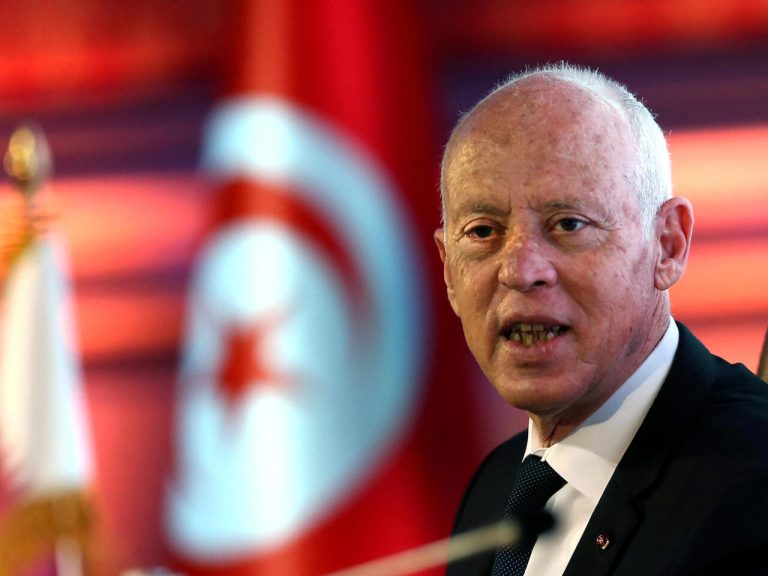Kais Saied, the 65-year-old President of Tunisia, has dismissed “mad” reports over his health after almost two weeks of no public engagements.
Saied had not appeared in public or held any meetings since March 22, according to posts on Facebook – the presidency’s only official channel of communication.
The lack of statements or videos sparked rumours about the state of Saied’s health.
The president appeared in a video posted on his official Facebook page on Monday night, referring to his political rivals as those “people deserve nothing but contempt”.
The North African country’s main opposition coalition had earlier pressed the government to explain Saied’s public “absence”, saying it had information that he was sick.
“The president is absent for two or three days, he gets a cold and that becomes a problem, a power vacuum?” Saied said.
Speaking alongside Prime Minister Najla Bouden, the President said the reports reflected “a level of madness never seen before in Tunisia”.
Earlier on Monday, Ahmed Nejib Chebbi of the National Salvation Front opposition coalition told journalists: “We ask the government to address the Tunisian people and say if the president has health problems that have forced him to be absent.”
Chebbi said Bouden would run Tunisia in the event of a temporary power vacuum, but that a permanent vacancy would present the country with a “great catastrophe” due to a legislative void.
In his video, Saied accused unnamed people of “trying to create crises” by talking of a power vacuum.
“These people have lost the plot, they’re obsessed with power,” he said.
Saied staged what his opponents called a “coup” in July 2021, suspending parliament and dismissing the government. He has since ruled by decree, and last year rammed through a constitution giving his office unlimited powers and neutering parliament.
Since February, security forces have arrested more than 20 public figures, including top members of the opposition.
Those targeted include members of the once-powerful Muslim democrat Ennahdha party and political activists, as well as lawyers, businessmen and the head of a popular radio station known for giving a platform to criticism of the president.
Saied has publicly alleged they were plotting against the state and labelled them “terrorists”.
Also on Monday, the Tunisian President ordered his foreign ministry to begin procedures to appoint a new ambassador to Syria nearly a decade after Tunis cut off diplomatic relations with Damascus as a result of the war in Syria.
Since becoming President, Saied has sent signals that he is willing to change tack and restore ties with Syria’s President Bashar al-Assad.




